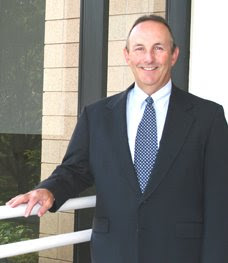 Mention was made earlier about the Denmark experience that led to some creative bridge-building in theological education.
Mention was made earlier about the Denmark experience that led to some creative bridge-building in theological education.
Here are two further examples of seminaries forging strategic partnerships:
Malaysia
Thomas Chin at MBTS says:
“Partnering with different schools and organizations has given us a huge advantage. Our partnership with Compassion International has made us a leading school in child education.”
“Our partnership with Southwestern Baptist Theological Seminary and Southern Baptist Theological Seminary (USA) enables us to offer credible PhD programs in different disciplines.”
“Our partnership with various mission agencies enables us to have a very strong mission program.”
USA
Michael Hagan, President and Professor of Hebrew Bible at Sioux Falls Seminary says:
“First, we have found a way through shared agreements to find a way to economize our ministry with the help of an ABC college and an ELCA college a few blocks from us. We now share some degrees with one of them, and have found a sharing of services to be helpful to the other. Our comptroller left and we moved the business responsibilities to the business office of Augustana College for one-third of the cost. When our IT person left, we opened an agreement for IT service for the cost of the salary (with 11 people helping us instead of one). When Augustana’s staff psychologists retired, we took over their campus’s counseling needs for a cost savings to them. In fact, we are moving to a new facility near their campus and will merge our theological collection into their library which is across the street and will use their chapel space for our chapels, saving costs in our building project. We are building classrooms that they can use and planning to use classrooms they are not using because they are too small (just right for us).”
“Regarding motivation, economic necessity has led us to some extremely creative thinking. I believe that small to medium size seminaries now and in the future will need to find creative ways to continue to meet the needs of the church by their ministries. Now we are stronger and getting stronger with finding ways to economize.”
“Second, we are moving to an educational approach that we call “contextual learning.” Instead of the classroom providing the hub of learning, ministry contexts become the focus. Some courses are in residence, some independent, some mentored, some through internet connection, etc. We are in the process of curricular changes so that the ministry context (whatever and wherever) provides the locus of learning. We have had to educate mentors, churches and ministry sites, students, and faculty to embrace a paradigm shift in how we achieve the competencies and outcomes we desire in our graduates. In addition, this model shifts to a lifelong learning emphasis that is most helpful for long term health in ministry. We are still in process, but it has opened new doors for meeting the needs of today’s church.”
“This second creative change came about by the realities of church needs. If less and less students are willing to leave their regions or local church ministries, coupled with reticence on the part of churches to support seminaries that only seem to wish the support to support their own agenda(s), then we need to find creative ways to equip future ministers given the current and not the past needs. We still exist only to serve the church. But we need to listen to them.”
Mike Hagen adds this comment: “One of the shortcomings with seminary education remains how little ministry practice students receive. Supervision and/or internships are either too little or not integrated into the whole learning experience. We are attempting to integrate. A by-product is that many underserved churches by partnering with us have a chance to have a pastor and pay for their education with faculty and mentors walking with them.”
This is a work in progress. Watch this space of check the President’s blog where occasionally write about it.
About the future Mike says: “Even faculty portfolios will look different. We believe we cannot add a ‘program on to what we are doing; instead, we need to rethink the whole enterprise and we are several years into the redesign. Bits are in place. In other words, lest I be misunderstood, we are changing so that the whole learning enterprise will look different.”
What has been your experience of developing partnerships with other seminaries or agencies?
Dr. Geoff Pound
Image: President Michael Hagen
